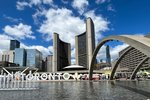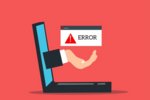Introduction
A. The requirements for licensing of Specialist Physicians is different than the requirements for licensing of Family Physicians.
B. Ease of licensing depends on the country in which a physician's medical residency training was obtained:
-
The Royal College of Physicians and Surgeons of Canada (RCPSC) has a list of "Approved Jurisdictions." These are countries for which the RCPSC has deemed the training to be equivalent to that of specialty-trained physicians in Canada.
-
The countries on the RCPSC list of "Approved Jurisdictions" are the United Kingdom, Ireland, Australia, New Zealand, Hong Kong, Singapore, South Africa, and Switzerland.
C. American-trained specialists, with American boards, have their own category in the RCPSC. (See below.)
D. The College of Family Physicians of Canada (CFPC) also has a list of "Approved Jurisdictions." The list includes: the USA, the UK, Ireland, and Australia.
E. Canada has 10 provinces and three territories. Although the documents required for the application process are essentially the same for all provinces, each province determines its own licensing requirements.
F. The major differences between provinces concern the requirements and/or processes for specialist physicians to transition from a temporary license to a full license.
1. Physicians with American Boards
2. Specialist Physicians from Approved Jurisdictions
3. Family Physicians from Approved Jurisdictions
4. Academic License (Ontario, British Columbia, Nova Scotia, Alberta, and Quebec)
5. General FAQs
__
1. Physicians with American Boards
In all provinces, physicians who have completed an American residency, have American Board certification, and have a full American license do not have to write the RCPSC exam. But:
- In all provinces EXCEPT ONTARIO, a physician applies immediately for a full license.
- In ONTARIO, a physician practices on a temporary license for five years, and then converts to a full license.
Back to List
2. Specialist Physicians from "Approved Jurisdictions"
All provinces except Alberta issue specialist physicians from Approved Jurisdictions an initial temporary license. Different provinces use different terms for this temporary license, i.e., Restricted, Provisional, or Defined. Despite the "restricted" or other title, the specialist physician practices and bills at the same rate as physicians with a "full" (or "regular" or "independent" license).
-
Currently, four provinces (Ontario, Manitoba, Prince Edward Island, and Quebec) issue time-limited temporary licenses, which usually cannot be renewed.
-
To transition to a full license in Ontario, Manitoba, Prince Edward Island, and Quebec, physicians must write the RCPSC exam. (We know that currently, in October 2025, some of these provinces are lobbying to eliminate the requirement for writing the exam.)
-
In New Brunswick, physicians can practice on a temporary license indefinitely (without writing the RCPSC exam).
-
In British Columbia, Saskatchewan, Nova Scotia, and Newfoundland, physicians can convert to a full license, without writing the RCPSC exam, after a minimum number of years practicing in the province. The minimum number of years ranges from two to five years, depending on the province.
-
In Alberta (under a pilot project which ends in January 2028), physicians from Approved Jurisdictions are immediately eligible for full licensure without writing the RCPSC exam.
Back to List
3. Family Physicians from "Approved Jurisdictions"
Family Physicians from Approved Jurisdictions are able to apply to the College of Family Physicians of Canada (CFPC) for assessment and receive the credential, known as the CCFP, without writing the exam.
With the CCFP certificate, physicians can apply for a full license.
There are two routes for obtaining the CCFP certificate:
- While in your home country, and before applying for a license in a Canadian province, apply for and receive the CCFP credential, and then apply for a full Canadian license; the cost of the CCFP assessment and certificate is approximately C$4,000,
OR
- Begin work on a temporary license, and apply for the CCFP certificate while working in Canada on the temporary license, and then convert to a full license during the validity period of the temporary license; the cost of assessment and certificate is also approximately C$4,000
Back to List
4. Academic License (Ontario, British Columbia, Nova Scotia, Alberta, and Quebec)
Five provinces (Ontario, British Columbia, Nova Scotia, Alberta, and Quebec) have special "academic" licenses for physicians from any country who have been offered full-time academic appointment at a medical school in the province.
In all cases, an academic license is valid only as long as one holds the academic appointment. But different provinces have different policies surrounding these licenses:
Ontario Academic License
- RCPSC exam is not required.
- Must have an appointment at the assistant, associate, or full professor level at one of Ontario's seven medical schools (i.e., McMaster University, Michael G. DeGroote School of Medicine; Northern Ontario School of Medicine University; Toronto Metropolitan University, School of Medicine; University of Ottawa, Faculty of Medicine; Queen’s University, School of Medicine; University of Toronto, Temerty Faculty of Medicine; Western University, Schulich School of Medicine and Dentistry).
- Valid for seven years or until one no longer has an academic appointment.
- The actual license must be renewed annually, like a regular license.
- The license may be converted to a "restricted" license after five or more years, allowing the physician to practice outside of an academic setting (without writing the RCPSC exam).
British Columbia Academic License
- Must have appointment at University of British Columbia as an assistant professor, associate professor, full professor (tenure or partner stream), clinical assistant professor, clinical associate professor, or clinical professor.
- License is a limited license, not a full license.
- Clinical component of job cannot be greater than 40% of the position.
- Must provide confirmation (specialists) from the RCPSC or (Family Physicians) from the CFPC of eligibility for "academic certification."
- To "convert" to a full license:
Alberta Academic License
- Physicians with an academic appointment receive a provisional license.
- Must have a full-time "Continuing Academic Appointment" (i.e., university-funded role) or Contingent Academic Appointment (i.e., funded outside the university) at one of Alberta's two medical schools (i.e., University of Alberta, Faculty of Medicine and Dentistry or University of Calgary, Cumming School of Medicine); physicians with a "special continuing academic" or "clinical academic" are not eligible.
- To "convert" to a full license:
Nova Scotia Academic License
- Must have an appointment at Dalhousie University.
- Physicians with an academic appointment receive a restricted ("Conditional Register") license.
- Must provide a letter from the Dean of the Medical School confirming a minimum of 20% of protected time for academic duties.
- The license is valid as long as the physician holds the academic appointment.
- To "convert" to a full license:
- Physicians from Approved Jurisdictions (Specialists, see above) or (Family Physicians, see above)
- Physicians NOT from Approved Jurisdictions may apply to switch to a Restricted License after three years working on an academic license. The Restricted License doesn't require sponsorship by the medical school; physicians can work on a restricted license for a maximum of five years, and then would need to do the RCPSC/CCFP exam to receive a full license.
Quebec Academic License
- A "sponsored professor" at one of Quebec's four medical schools (i.e., Université Laval, Faculté de médecine, McGill University, Faculty of Medicine, Université de Montréal, Faculté de médecine, Université de Sherbrooke, Faculté de médecine) receives a "Restrictive Permit."
- The permit is valid for one-year periods, renewable for the duration of the academic appointment.
- To "convert" to a full license:
- If a physician has less than five years of experience in Quebec, she/he must write the RCPSC or CCFP exam.
- If a physician has five or more years of experience in Quebec, she/he must show proof of continuing education, and having completed all other Quebec requirements (e.g., proof of French, etc.).
Back to List
5. FAQs
Q: What types of work permits can physicians use to enter Canada?
A: These are:
1. Temporary Foreign Worker Program (commonly referred to as a “Temporary Visa” or "Temporary Work Permit")
2. Permanent Residency Visa (PR Visa)
3. CUSMA Work Permit (sometimes called by the US term, “TN Visa”)
For more information, see our article Overview of Canadian Work Permit Pathways for Physicians.
Q: What are the different terms used for a temporary license?
A: Different provinces use different terms for a temporary license, i.e., Restricted, Provisional, or Defined. Despite the "restricted" or other title, the physician practices and bills at the same rate as a physician with a "full" (or "regular" or "independent" license).
Q: What is a Royal College of Physicians and Surgeons of Canada (RCPSC) Letter of Eligibility?
A: The Letter of Eligibility confirms that an international physician's makes him/her eligible to write the RCPSC specialty or subspecialty exams. It is required for physicians from Approved Jurisdictions who are applying for a temporary license in Canada. The Letter of Eligibility is valid for five years. If a physician doesn't write the exam within five years, then she/he must reapply for the Letter of Eligibility.
Q: I do not have American Boards, and I am not from an Approved Jurisdiction. What are my options?
A: See what options may be suitable for you on the Medical Council of Canada's Pathways for International Medical Graduates page.
Back to List
Also see:









